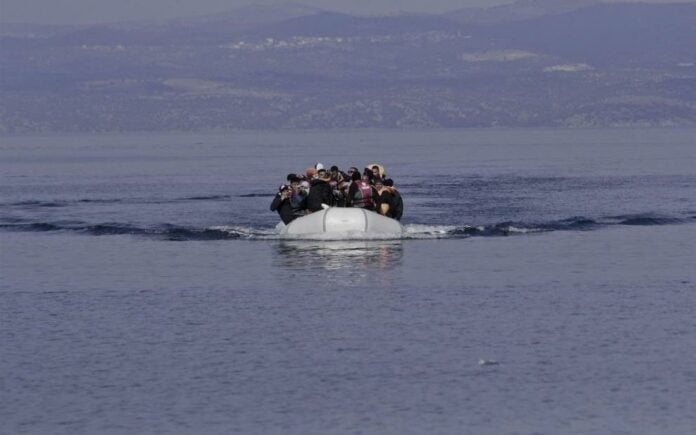Thirty-three members of NGOs operating on the eastern Aegean island of Lesvos – the epicenter of a refugee/irregular migrant crisis since 2015 – along with three foreign nationals, have reportedly been charged with felony racketeering, espionage and various other violations dealing with migrant trafficking.
According to media reports in Greece on Monday citing a voluminous indictment, the suspects systematically facilitated the illegal entry of foreign nationals onto Greek territory, and specifically through Lesvos.
The investigation by Greek authorities spans several months and included participation by the national intelligence service, the anti-terrorism squad, a data analysis unit, the criminal science division and the greater Athens area’s aliens bureau.
The period when the specific criminal activity commenced is cited as last June.
Greek authorities charge that the suspects used the cover of offering humanitarian aid on the island in order to assemble, transport and meet boat-loads of foreign nationals who previously disembarked from the opposite Turkish coast, all for hefty payments.
Information on locations for the assembly on the Turkish coast and disembarkation on Lesvos, complete with coordinates, would be conveyed through cell phone apps and closed Internet groups. Other information supplied by the suspects included the number of illegal migrants to be transported on a specific craft, sea conditions, the spot on shore for landing, information on Greek coast guard activity and even conditions within so-called “hotspots” for hosting third country nationals on the island.
Lesvos has borne the brunt of the migrant crisis that erupted in the Aegean in the spring of 2015, just months after the election of the radical leftist SYRIZA government in the country. Tens of thousands of would-be asylum seekers from Syria and Iraq initially landed on a handful of eastern Aegean islands after first setting off from the Anatolian “Riviera” by boat, usually flimsy inflatable craft. The migrant flows reached into the hundreds of thousands before the year ended, when Greece’s northern borders were sealed by states further north along the initial “corridor” to central and western Europe.
Besides people from war-ravaged parts of the Middle East, the brief “open border” policy attracted would-be asylum seekers and migrants from as far away as Congo, to Somalia and Burma, with tens of thousands of Afghans subsequently accounting for the largest bloc over the past few years.














